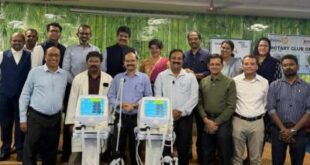The anatomy of the human body is all about vital organs and their optimum functioning for overall well-being. But many other organs like muscles, fat, blood vessels, lymph vessels, nerves, and soft tissues play an equally important role in keeping our body moving and performing to its fullest potential, and if malignant cells invade these, physical health gets affected.
Soft tissues play a significant role in the human body by connecting, surrounding, and supporting the entire structure, and there are many types of benign tissue cancers, among which fibrosarcoma is one of the rare and fast-growing soft tissue cancer.
Fibrosarcoma is a sporadic type of soft-tissue cancer that emerges from soft-tissue masses. Also known as sarcoma, it affects fibroblasts, which are responsible for building fibrous tissue across the body, wrapping around tendons, ligaments, and muscles. Fibrous soft tissue is one of the soft tissues which plays a crucial role in keeping various other tissues intact and is connective tissue.
Fibrosarcoma affects fibroblasts which multiply faster, and it is one of the fast-spreading tumours. In rare cases, this tumour can also occur in bone.
Signs and Symptoms of Fibrosarcoma
Fibrosarcoma may not be present with any noticeable symptoms at the initial stages, and it is not easy to distinguish between other types of soft tissue cancers. It is witnessed that fibrosarcoma takes a long time to present its observable symptoms, including:
Ø Swelling with or without pain in various parts of the body, especially in extremities
Ø Severe cough with breathlessness
Ø Traces of blood in the vomit
Ø Dark stool
Ø Irregular bleeding from the vagina and abdominal cramps
In severe cases, the patients may suffer from excruciating pain in the area of the tumour, noticeable inflammation around the bones, difficulty in moving, numbness, and fragile bones. Though fibrosarcoma can affect the entire body, it can also be confined to specific locations and is often diagnosed in the thighbone, shinbone, and jaws. It is mainly seen in individuals aged 20 to 60, and men are more prone to this condition.
Causes
There are no specific reasons behind fibrosarcoma. However, a few common risk factors include:
Ø The damaged or weakened lymphatic system
Ø Exposure to radiation while getting treated for other cancers
Ø Inhalation or getting exposed to carcinogenic chemicals or substances like vinyl chloride, arsenic, etc
Ø Inherited genetic abnormalities that can trigger cancerous growths
Diagnosis
Fibrosarcoma is detected by running various blood and imaging tests such as
Ø X-rays
Ø CT-Scans
Ø MRI
Ø PET-CT
Biopsy, where a sample of tissue is extracted for studying the tumour, stage, and grading
Treatment
The treatment protocol for fibrosarcoma depends on the stage and grading of the tumour. Surgery to remove the tumour followed by chemotherapy and radiation therapy, should suffice for the initial stages. However, in advanced stages, the patient may still undergo surgery where lymph nodes are removed, followed by high doses of radiation therapy and chemotherapy.
Patients diagnosed with highly advanced fibrosarcoma would require palliative care to alleviate the symptoms to a certain extent. Like in cases of other cancers, the outcome depends on the stage and grading of the tumour.
Prevention
People can reduce their risk of developing small bowel cancer, by minimizing their exposure to risk factors such as obesity and consumption of alcohol. It is important to follow a healthy lifestyle and stay active to keep cancer risk at bay. If diagnosed and treated for fibrosarcoma, it is essential to follow-up with the doctors regularly and take medication on time. Heed to the body, and if one notices any of the above symptoms, immediately reach out to your doctor.
Dr Nikhil Mehta, Consultant Surgical Oncology, HCG Cancer Centre Jaipur
 Newspatrolling.com News cum Content Syndication Portal Online
Newspatrolling.com News cum Content Syndication Portal Online






